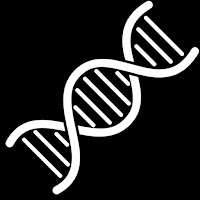COVID-19 evolved very quickly in our today's world. Currently, a number of covid variants are present here. On the other hand, there are also many types of drugs are being used to decrease the illness happening due to covid. Everytime scientists are trying to find new drugs to treat SARS-CoV-2. One of these researches has founded 200 new drugs. The fact is that out of these 200 drugs, 160 are not related with SARS-CoV-2.
How researchers found these non related SARS-CoV-2 drugs?
Researchers at the University of Cambridge’s Milner Therapeutics Institute and Gurdon Institute founded these drugs by following some steps-
Viral Proteins identification:
Firstly, Researchers used a combination of computational biology and machine learning to create a comprehensive map of proteins that are involved in SARS-CoV-2 infection. These proteins are present in the structure of virus and directly influence its effectiveness. In other words, these proteins help the virus to break into the host cell to generated the consequences of infection. Researchers examined this network of proteins using artificial intelligence (AI) approaches, and identified some key proteins involved in infection as well as biological pathways that might be targeted by drugs.
Professor Tony Kouzarides, Director of the Milner Therapeutics Institute, who led the study, said: “By looking across the board at the thousands of proteins that play some role in SARS-CoV-2 infection whether actively or as a consequence of infections, we’ve been able to create a network uncovering the relationship between these proteins."
Drug identification against key proteins:
The team used computer modelling to carry out a ‘virtual screen’ of almost 2,000 approved drugs and identified 200 approved drugs that could be effective against COVID-19. Forty of these drugs have already entered clinical trials, one unrelated drug founded by researchers was a antimalarial drug.
Professor Tony Kouzarides said, “We used the latest machine learning and computer modelling techniques to identify 200 approved drugs that might help us treat COVID-19. Of these, 160 had not been linked to this infection before. This could give us many more weapons in our armoury to fight back against the virus.”
Drug Testing:
Researchers tested a subset of those drugs implicated in viral replication, they found that two in particular an antimalarial drug and a type of medicine used to treat rheumatoid arthritis. These drugs were able to inhibit the virus and provides an initial validation of their data-driven approach.
Currently, the focus of majority of small molecule and COVID-19 antibodies, is on several key virus or host targets, or on pathways. For example, inflammation where a drug treatment could be used as an intervention. Today, most of COVID-19 drugs are either currently the subject of clinical trials or have already been through clinical trials and been approved.
Dr Namshik Han, Head of Computational Research and AI at the Milner Therapeutics Institute, added: “Our study has provided us with unexpected information about the mechanisms underlying COVID-19 and has provided us with some promising drugs that might be repurposed for either treating or preventing infection. While we took a data-driven approach, essentially allowing artificially intelligent algorithms to interrogate datasets . We then validated our findings in the laboratory, confirming the power of our approach"
They also said that, “We hope this resource of potential drugs will accelerate the development of new drugs against COVID-19. We believe our approach will be useful for responding rapidly to new variants of SARS-CoV2 and other new pathogens that could drive future pandemics.”
This new research revealed 160 unrelated SARS-CoV-2 drugs could be a great weapon to cure this deadly virus. Further trails and research is running to test and know about these newly identified 160 SARS-CoV-2 drugs.
Reference:
- Material provided by University of Cambridge
- Han, N, Hwang, W, Tzelepis, K, & Schmerer, P, et al. Identification of SARS-CoV-2 induced pathways reveal drug repurposing strategies. Sci Adv; 30 June 2021




